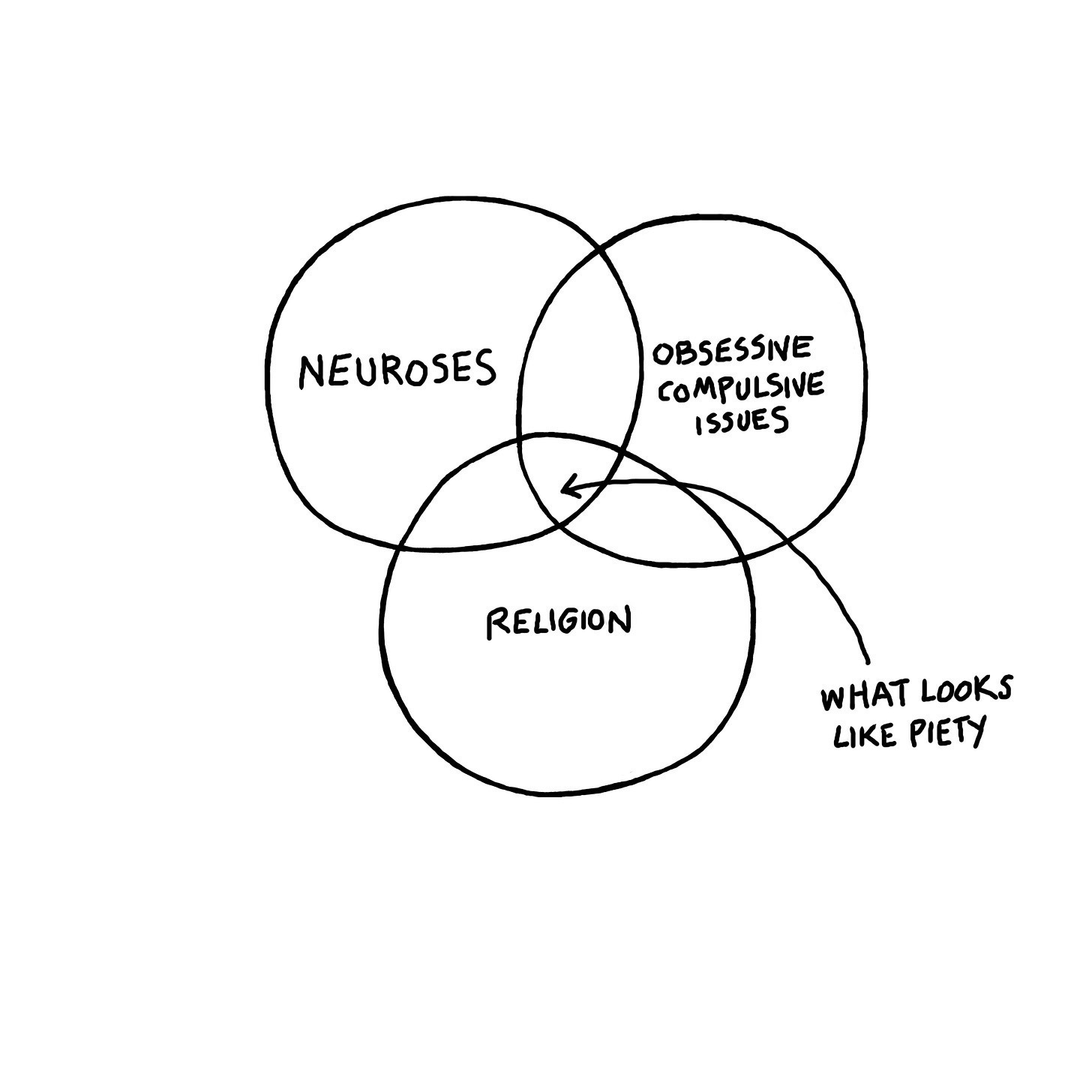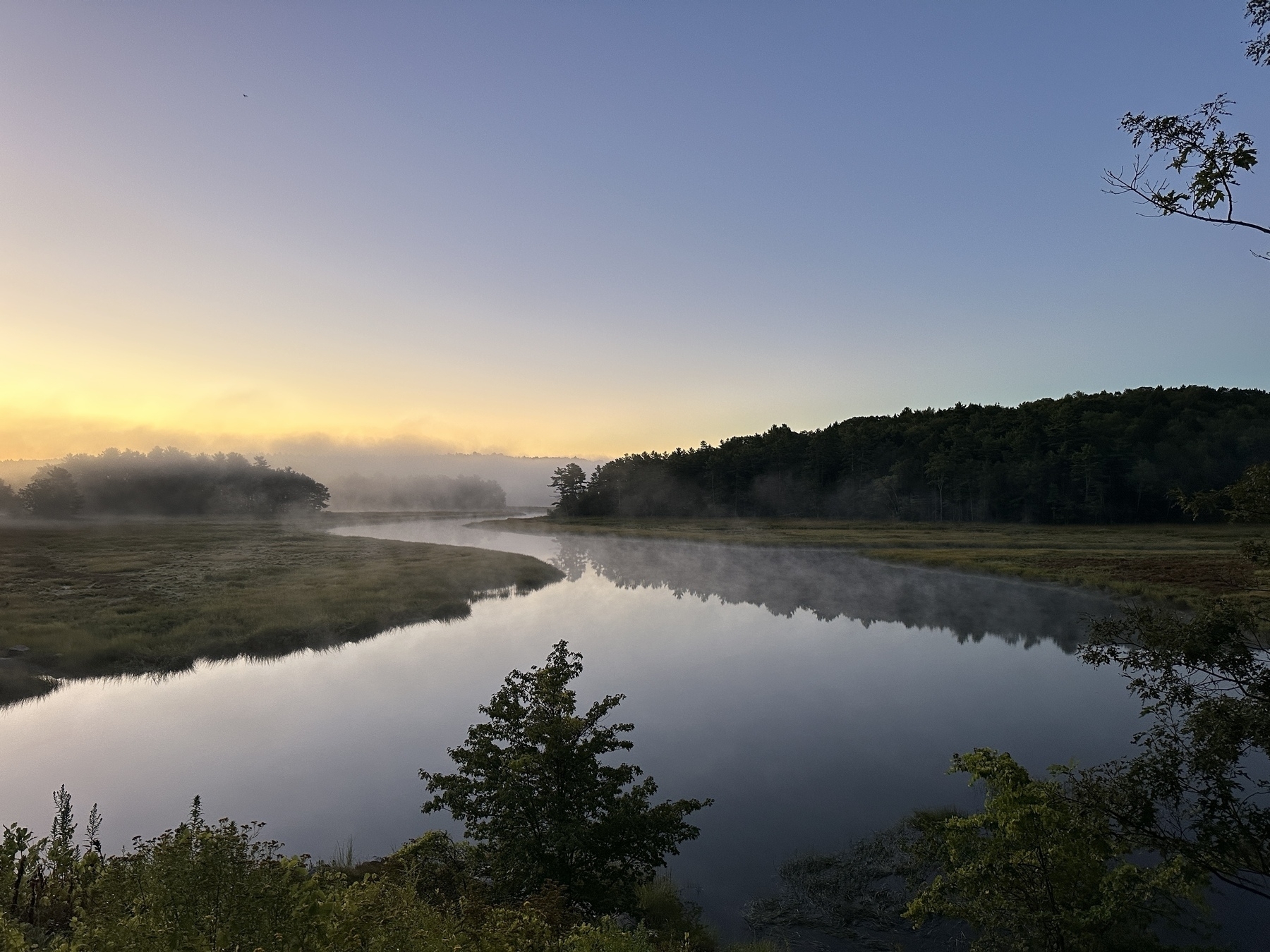I don’t know what replicating bug I am currently host to, but my sneezes belong in a Ridley Scott Alien movie.
Václav Havel, August 21, 1982 — I was going excerpt it, but the whole thing is so worth reading, right to the last line. Reopening his book of letters from prison has been a treat lately. (I almost wonder if McGilchrist has been reading this too…)
Tee hee

I now think that there is no greater catastrophe awaiting us than that which will be brought about by advances in AI.
Its effects on the human soul and on everything that makes life worth living are so great that they are beyond the ordinary human mind’s comprehension; nothing remotely like this has ever been seen before. This can be the only explanation of the weird indifference that many people still seem to show even at this, the eleventh hour.
Iain McGilchrist is feeling a little, uh, pessimistic.
A coworker was talking about the 12-hour Walk thing, so I looked it up. The advertising is, uh, très blugh — to the point of irony, I think, if not worse. The good news is that you can go for an “unplugged” walk any time you want, without the App, and without a trademarked “mindset.” But then, I haven’t worked with “the biggest brands and the brightest minds,” so feel free to do your own research on this one 🤓
Steve Robinson: Strive for sainthood, not martyrdom.

Look up enviable in the dictionary…

About a year ago, I saw a printed advertisement for The Point magazine (probably in The Hedgehog Review, but I don’t remember), and I subscribed. Not too long after that, Mana Afsari’s excellent piece there started being passed around and linked to, and I excitedly took this as confirmation that this was a great subscription to add to the quiver.
Since then I have done nothing but question the value of that subscription. Possibly every article that I have read in The Point has been distinctly onto something, yet, it seems to me, without really knowing what to do with it. (Afsari’s piece was, to my reading, not quite an exception to this.) Admittedly putting myself at risk of exaggeration: If there was a group of people who were quite gifted at recognizing the true and the beautiful, but who didn’t actually believe that the true or the beautiful really exists, well, that’s more or less who and what I’ve felt like I’ve been reading there over the past year. It’s excellent exposure, but solid ground it has not.
That’s almost certainly more harsh than they’d appreciate, but as far as I can tell, it isn’t necessarily antithetical to their goals, which adhere “to no specific political or social agenda” but instead would have their readers “participate in a dialogue between diverse intellectual traditions, personalities and points of view.” That makes it a (potentially) great medium through which to pass, but by itself might also make one more sympathetic with the why-liberalism-failed feelings of Patrick Deneen.
All that being said, this week I’m finally sitting down with their summer issue, and I’m certainly hooked, even ready to be proven wrong. (Although it was one of the articles in this summer issue that sparked the above description.) The entire issue is dedicated to the question What is violence for?
How to contextualize these snapshots of “real” events within an everyday experience characterized increasingly by a sense of disembodiment, disorder and drift? Was violence, too, destined to collapse into the endless slop of “content”? Or, if properly attended to, could it still hold the potential to resensitize us to the reality of the shared world we inhabit as finite, moral selves?
The note from the editors is certainly worth reading.
I’ll add that one of the nice things about The Point is that it’s very easy to purchase a single issue if you like. (Here’s a link to purchase the Summer Issue.) Another nice thing: It is absolutely my favorite one to hold in my hands and read. The font is excellent; the margins are great; the paper is book-like, not magazine-like — in fact, it’s more like reading a book than any other magazine I’ve ever held.
I’m not sure if this manages to be a recommendation at all because I’m still not sure I recommend the magazine in general. But I don’t think you’d go wrong in picking up this issue.
Marsh River calmly heading off to join Sherman Lake

Marilynne Robinson — Ever the soft, serious, smiling blessing. Many good words worth sharing.